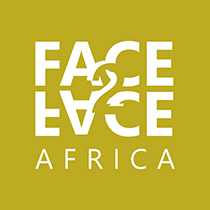Thirty million condoms have been imported into Tanzania to curb any shortage, officials have said Thursday.
According to reports, some guest houses in Dar es Salam, Tanzania’s commercial nerve and tourism hub no longer give out free condoms partly because they are scarce, making them expensive on the market.
“Some shops are selling condoms for 3,000 Tanzanian shillings ($1; £0.78), 5,000 or 10,000 Tanzanian shillings – depending on the brand. Customers must now have their condoms because we can’t afford to give them out for free,” a hotel worker told BBC Swahili.
Deputy Health Minister Dr. Faustine Ndugulile believed there was no need for the guesthouses to stop providing condoms free of charge for their clients because they are now available.
“We’ve ordered over 30 million condoms. What changed was the distribution model; previously some agencies were distributing the condoms but things have changed and we now have new agencies mandated with distribution.
“What we want to do is to ensure the new model works effectively and that awareness campaigns reach those targeted and condoms become available,” he said.
Two of Tanzania’s populous regions earlier were hit by condom shortage, raising fears of a possible rise in the number of sexually transmitted infections.
Ndugulile then said the government was aware of the situations in the two regions – Njombe and Shinyala. According to the 2012 census, the regions have a combined population of more than two million people.
Speaking at an orphanage in Dar es Salaam early this year, Ndugulile said the shortage was caused by the government’s new procurement policy which cuts off private suppliers.
“It is true that there is shortage of condoms, which is attributed to the change of supplying system… However, this signifies that the Tanzanian population are educated enough to use protection,” Ndugulile said.
Tanzania recognized HIV and AIDS as a threat to development and declared it a national disaster in 1990, seven years after the first few cases were described.
In 2018, 1.6 million people were living with HIV in Tanzania, equating to an estimated HIV prevalence of 4.6%. In the same year, 72,000 people were infected with HIV, and 24,000 people died from an AIDS-related illness.
Tanzania’s HIV epidemic is generalized, with pockets of concentrated epidemics among key populations such as people who inject drugs, men who have sex with men, mobile populations and sex workers. Heterosexual sex accounts for the vast majority (80%) of all HIV infections in Tanzania and women are particularly affected.
The severity of the epidemic varies across the country. Some regions report an HIV prevalence of around 1.5% (Manyara) while other regions have prevalence as high as 14.8% (Njombe). Overall, the epidemic has remained steady because of on-going new infections, population growth and increased access to treatment.
Last year, residents of a Kenyan town, Tanzania’s Northern neighbors reportedly resorted to recycling used condoms due to shortage as they struggle to protect themselves against sexually transmitted diseases (STDs).
Local newspaper Daily Nation reports that the town called Archer Post has over the years witnessed a hike in sex trade and due to the shortage of male condoms some men resorted to the use of polythene during sexual intercourse for protection.
“The spread of HIV and Aids has been worsened by a section of locals who normally wash used male condoms due to its scarcity especially after the government banned the use of polythene carrier bags last year,” Daily Nation quoted a resident as saying.




